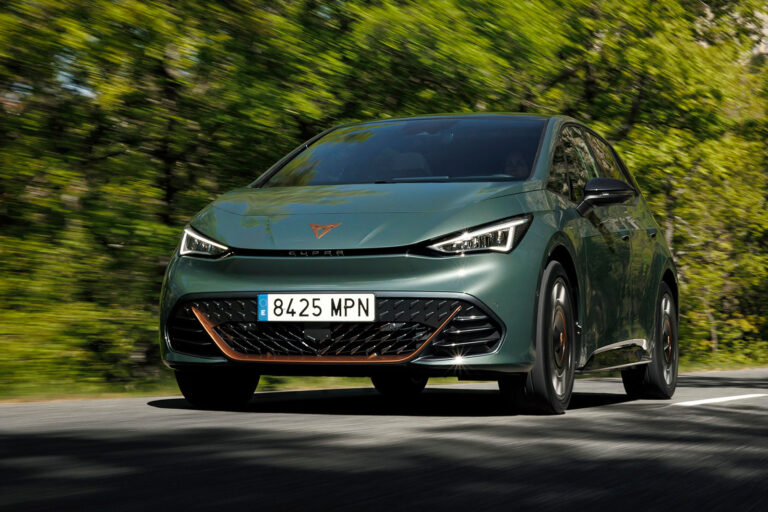The dynamic changes to the Born VZ – VZ is shorthand for veloz, which translates as fast – are extensive over the standard model on which it is based.
On the powertrain side, the rear-mounted motor has had power increased from 228bhp to 322bhp while torque has increased from 229lb ft to 402lb ft.
This cuts the 0-62mph time by over a second to 5.7sec while the top speed is also given a big increase by 25mph to 124mph.
The Born VZ can take its power and torque hike well, and the extra acceleration is useful and usable when attacking a series of corners. Very little unsettles the car and the tuning is commendable.
Perhaps the most focus of all was given to the brake pedal and its feel, something that’s always been off in performance electric cars as the tuning has to factor in not only the traditional brakes but the regenerative braking from the motor, too, which is why so many EVs have a spongy pedal feel.
The brakes take some getting used to and they’re still as you’d expect from a petrol hot hatch; the first part of the travel is quite dead before they really start to bite. From there they’re progressive but the lack of initial stopping power feels a bit strange. You can also control the level of regeneration using paddles on the steering wheel.
The brakes aren’t as strange as the absence of noise. Having bemoaned some of the artificial racket coming from EVs, the sound of silence was equally disconcerting in the Born VZ. We await someone to solve this conundrum.


